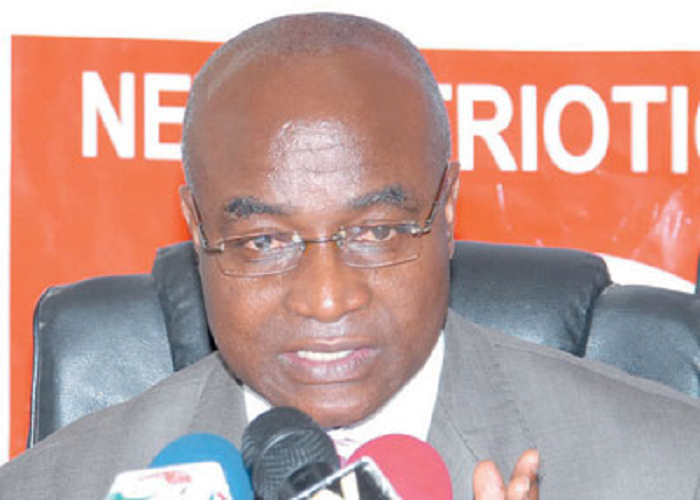
Kyei-Mensah-Bonsu & beyond
In my inexperienced mind, I used to challenge a theory put forth by an economist that one of the effects of salary increase is a change of tastes from eating gari at home to eating fried rice in restaurants; from having only one wife to having multiple wives and concubines.
Advertisement
Today, I see his theory at work. The more we pay our Parliamentarians, the more money they demand.
Example is the recent disclosure that the National Lotteries Authority was compelled to look for, and did spend GHȻ150,000 (1,500,000,000 pre-Kufuor cedis) to facilitate deliberations on the amendment of the National Lottery Act, 2006 (Act 722), mostly as allowances to members of the parliamentary Select Committee on Finance.
Last January 10, citifmonline.com reported that anti-corruption campaigner and former Attorney General, Mr Martin Amidu, had accused parliamentarians of engaging in all forms of corruption. Mr Amidu’s letter mentioned how some MPs had institutionalised corruption by taking bribes from Ministries, Departments and Agencies (MMDAs) to approve their budgets.
For example, he revealed, the Ministries of the Interior and the Justice and Attorney-General’s Department had, in times past, been compelled to ask for monetary contributions from the component security, intelligence and legal agencies to pay extortion money to committees of parliament before their budgets were heard at the yearly budget hearings.
Mr Amidu further disclosed that money had been paid by Ministries, Departments, Agencies (MDA) to parliamentary committees to deliberate on loan agreements and bills in or outside Accra, together with pocket or fuel allowances that even the supporting staff of the committees of parliament were paid a share of it.
Greed and vice among parliamentarians are not new, either in Ghana or the world, even in so-called advanced western democracies. The 2009 parliamentary expenses scandal in the United Kingdom was a major political scandal that exposed widespread misuse of allowances and expenses permitted to Members of Parliament. It emerged that MPs, including former ministers, were claiming expenses of up to £20,000 a year each for rent, as well as receiving rent from properties that were often purchased and refurbished with the taxpayer’s assistance.
There is a little difference in the conversation, however. In the case of the UK, the revelation attracted sanctions. It resulted in a large number of resignations, sackings, de-selections and forced retirements, together with public apologies and the repayment of expenses. Many members or former members of the House of Commons, and members of the House of Lords, were prosecuted and sentenced to terms of imprisonment.
Let’s come home
My interest in the NLA case is a proposal that stands in the name of the LeaderMajority , Mr Osei Kyei- Mensah-Bonsu that select committees could sit in Accra and in committee rooms of Parliament. If we are serious about what we do with our money, we should be listening to this man. People say that sitting in Accra will, by itself, not stop the corruption. I agree, but it will reduce the burden on the client agencies.
To sit outside of Accra, the client agency has to pay hotel bills - and these are not budget hotels. It means that the staff of the agency need to either fly or drive to the retreat venue (consider the fuel) and also be accommodated in the hotels.
I can assure readers that besides the inconvenience allowance to the MPs, not all the money goes into the pockets of the MPs. A lot of it goes into their stomachs.
At 7 a.m /8 a.m, they go for breakfast and proceed to the opening ceremony. Around 10 a.m, there is a “Coffee Break”. Between 12.30p.m and 1p.m, there is buffet lunch (the quality and variety are an insult to poverty). At 3p.m, there is another “Coffee Break”. The day ends at 5 p.m and there is buffet dinner at 6p.m.
The cost to the agency also includes out-of-station allowance to its staff.
Contrast Tanzania. That country’s President, John Magafuli, has decreed that all conferences, seminars and lectures by state institutions be held in the conference rooms of the respective ministry, department or agency. This has been obeyed. Before lunch and after lunch, the participants are entitled to only water. The directive is in force and there has been no evidence that with the cancellation of the “Coffee Breaks”, the quality of deliberations has suffered.
Check Ghana. Recently, the State Enterprises Commission organised a ceremony where CEOs of state institutions signed a performance contract. The venue was the La Beach Hotel, a five-star facility. Meanwhile, in his address, Mr Asamoah Boateng, the new CEO, complained that the commission was seriously under-funded.



